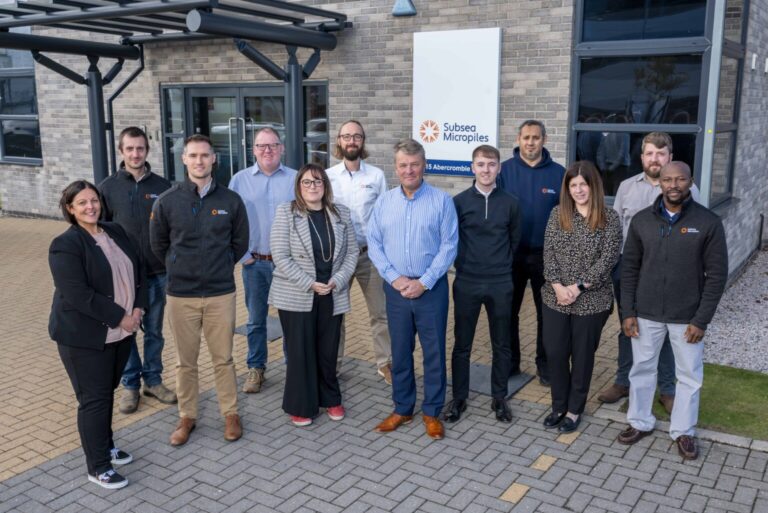Subsea Micropiles, a specialist in foundations and anchoring solutions for offshore energy projects, is doubling its operational footprint following its relocation to a new, larger base in Westhill, Aberdeenshire. This strategic move is designed to accommodate a planned doubling of its workforce next year and marks a significant milestone for the privately held firm as it increases its commitment to Scotland’s renewables supply chain.
The new office will serve as a hub for engineering, operations, and project delivery teams, enhancing the company’s ability to support offshore wind and marine infrastructure markets. The relocation to the global subsea hub of Westhill reflects Subsea Micropiles’ optimism, as the region continues to attract investment from the world’s leading subsea engineering firms.
Chief executive Derek Robertson commented: “Our relocation to Westhill signifies both our recent expansion and our optimism for the future. This new office provides us with the necessary space and resources to enhance our capabilities, attract exceptional talent, and maintain close relationships with many of our key clients and partners.”
Subsea Micropiles has recently secured £9.2 million in investment, most of which was provided by the Scottish National Investment Bank (£6.7m) with additional participation from Marubeni-Itochu Steel Inc. (£2.5m). This funding is expected to support the creation of approximately 100 jobs over the next five years. The firm intends to expand manufacturing capacity locally, reducing Scotland’s reliance on imported offshore wind components—a move that supports cost-efficiency and supply chain resilience for floating wind projects.
Subsea Micropiles’ marine anchoring technology, which adapts land-based micropile innovations for maritime environments, offers reduced carbon impact and lower acoustic disturbance compared to traditional piling methods. The anchors can be installed using smaller vessels and remote drilling systems, aligning with offshore wind industry priorities to minimize environmental harm and support net-zero targets.
“There is so much potential in Scotland’s offshore wind market, and we are excited to play our part in the supply chain with our lower cost system that, critically, is less environmentally impactful,” said Derek Robertson.
The company’s broader expansion is underpinned by surging demand in the UK subsea engineering sector, which now supports 51,000 jobs and is valued at £9.2 billion, primarily driven by offshore energy and renewables.

